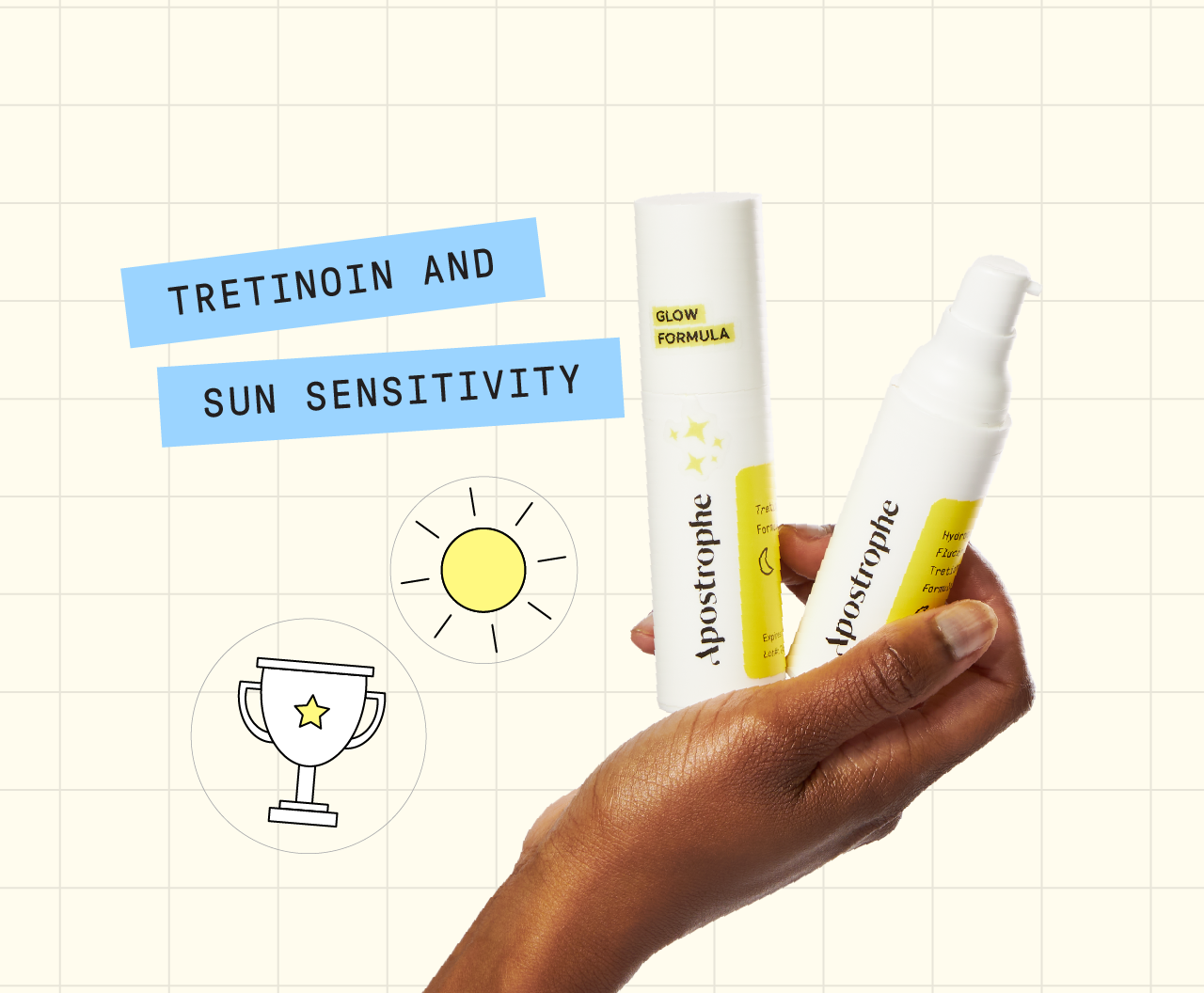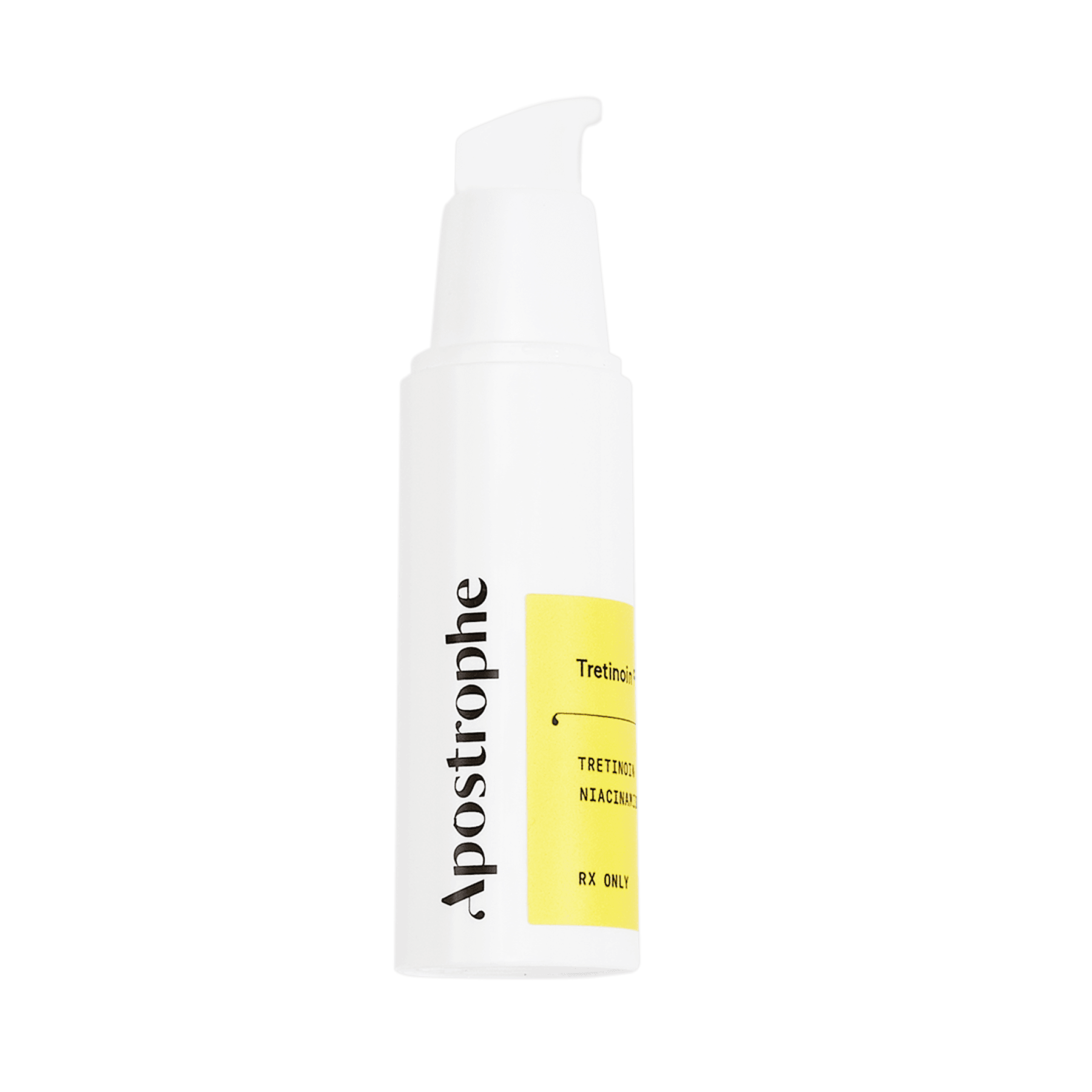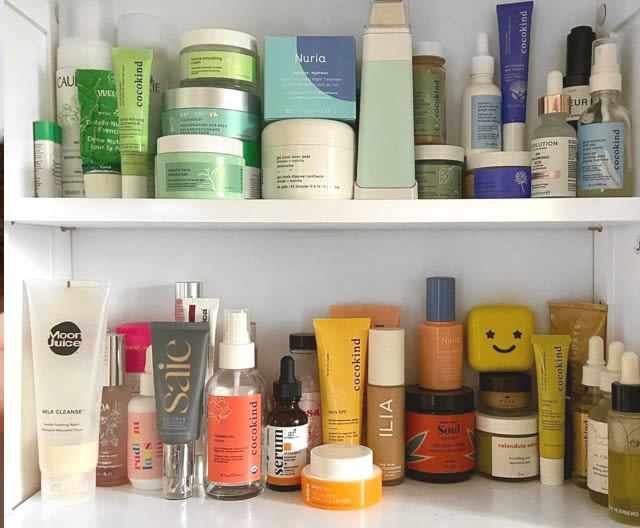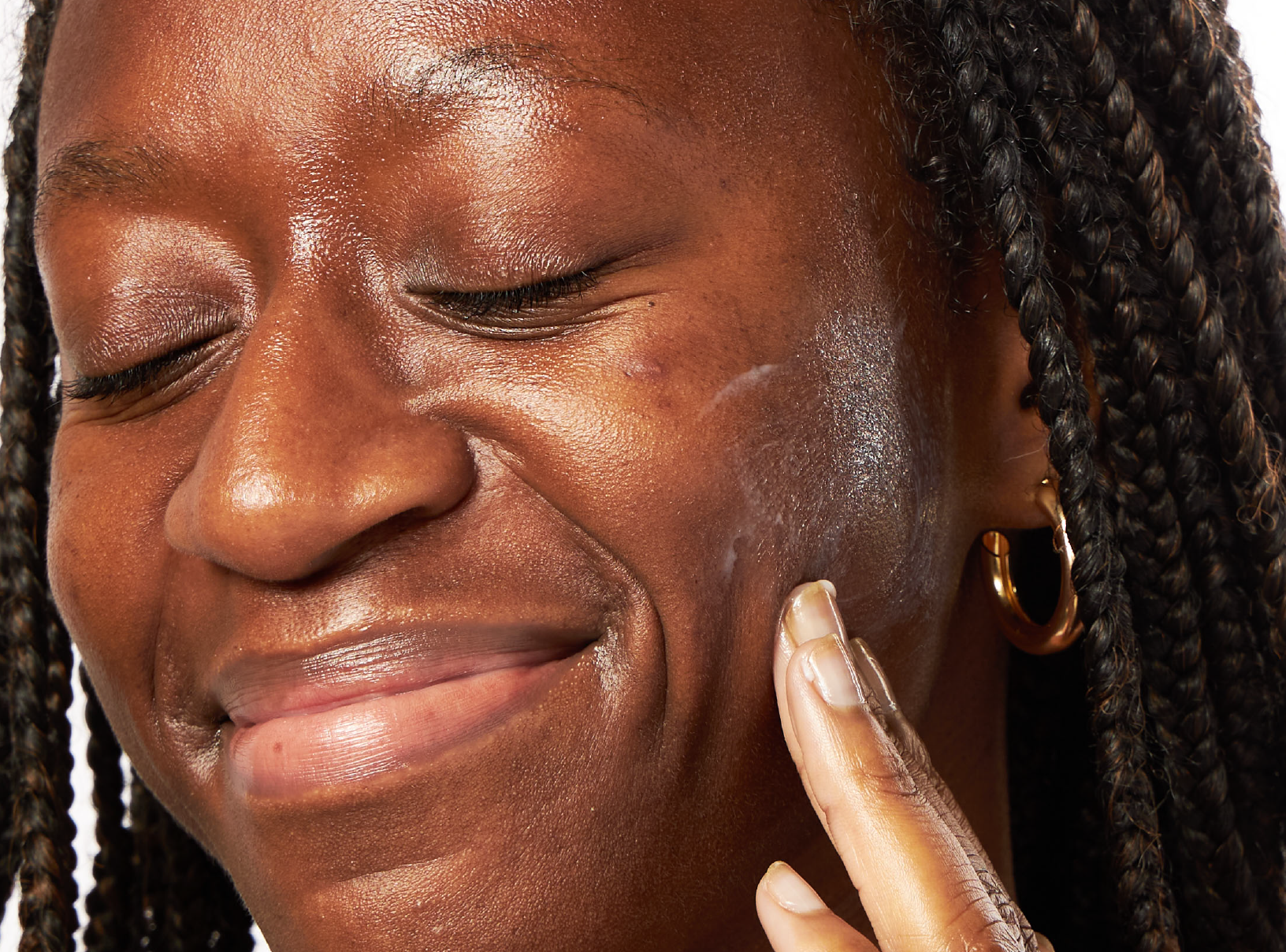Deep Dives
Tretinoin and Sun Sensitivity: What you need to know


SHARE
Deep Dives
Tretinoin and Sun Sensitivity: What you need to know
Medically reviewed by Aimee Paik, MD
Written by Annie Lam
Last updated 6/3/2022
If you know anything about the skincare space, you've probably heard of tretinoin before. It's one of the best ingredients for treating acne, hyperpigmentation, and signs of aging. However, one of the potential side effects of tretinoin is that it can cause sun sensitivity. Today we'll be talking about what that means and if you should be worried about using tretinoin during the summer.
What is tretinoin?
Tretinoin (Retin A) is a topical retinoid that has been used by dermatologists for decades to treat acne, signs of aging, and hyperpigmentation. It's a very popular prescription acne treatment because it's clinically-proven and effective for treating a variety of acne severities. Tretinoin is also a great complement to oral acne medications to target more severe acne.
Benefits of tretinoin
- Resurfaces the skin, unclogs pores, and prevents new acne lesions over time.
- It's stronger and more effective than other vitamin A derivatives like retinol or retinyl palmitate.
- Can help even out skin texture and fade dark spots caused by acne.
- Treats and prevents signs of aging by stimulating collagen production in the skin.
As you can see, there are lots of great benefits of topical tretinoin. However, like most prescription treatments, it does have a few side effects to keep in mind when starting treatment.
Tretinoin side effects
Most of tretinoin's side effects only happen in the first month or two of treatments, often called the "adjustment period." Dermatologists typically recommend starting out slowly with tretinoin to minimize these side effects. Once your skin starts to adjust to treatment, you can start slowly increasing frequency as needed. The most common side effects are:
Dryness
Some people experience initial dryness or skin irritation when starting out on tretinoin. Your skin may initially get dry and flaky the first few weeks of treatment. To combat this, we recommend applying moisturizer before tretinoin. Check out the best methods to apply tretinoin.
At Apostrophe, our topical tretinoin formula is custom-compounded with niacinamide to minimize skin sensitivity and dryness.
Purging
What is purging? Purging can happen when using tretinoin because it increases your skin's cell turnover rate. This brings dead skin and build up in your pores to the surface. It's important to note that not everyone experiences purging and the severity can vary from person to person. Stick with your treatment - clearer skin is on the other side!
Sun Sensitivity
One of the most commonly talked about side effects is tretinoin sun sensitivity. Since tretinoin helps to resurface the skin, it can cause initial sun sensitivity because of the fresh, new skin that comes to the surface.
Now that you know a little more as to why tretinoin causes sun sensitivity, let's talk about how this photosensitivity can affect how you use tretinoin.
Can you use tretinoin in the summer?
We've heard some tretinoin myths that say that you can't use tretinoin or other topical retinoids in the summer. According to Dr. Aimee Paik, “Retinoids can increase sun sensitivity during the first six months of use (because of the exfoliating effect). However, after that, your skin’s sensitivity to the sun will revert back to its baseline.”
Even with the initial sun sensitivity, there are no issues with using tretinoin in the summer. Just remember to wear your sunscreen daily and minimize sun exposure during peak hours. We recommend these sun protection tips regardless of the season or treatment used.
So don’t be afraid to use your tretinoin in the summer! The most important thing is using your treatment properly. This will help minimize any potential side effects and help you see the best results with tretinoin.
How to use tretinoin
When it comes to using tretinoin, we have some tried and true tips we recommend trying:
🐢 Start slowly! When starting out with tretinoin, use it 2-3 nights a week, and build up as tolerated.
🤏 A little goes a long way. You only need a pea-sized amount of tretinoin cream. Dot it onto the skin before rubbing it in to make it easier to spread.
☁️ Keep your skin moisturized. When using any acne medication, it's important to use a gentle moisturizer to prevent dryness, irritation, and sensitive skin. We recommend looking for a moisturizer with hyaluronic acid to keep your skin hydrated.
☀️ Don't forget sunscreen! Wearing sunscreen is a crucial part of your skin care routine to prevent sun damage, skin cancer, sunburn, and hyperpigmentation. If you're looking for a derm-approved SPF, get 'Screen!
Following these tretinoin tips will help keep your skin healthy so your acne treatment can work its best.
Get expert treatment for your skin
If you've been thinking about getting tretinoin for your skin concerns, we recommend checking in with a dermatologist or provider. They'll be able to prescribe the best skin care product for your skin and concerns.
At Apostrophe, we offer customized topical and oral acne medication options to treat your hormonal acne, body breakouts, inflamed acne, and more. Getting started is easy. All you need to do is take a quick virtual consultation, and within 48 hours, you'll receive a treatment plan personalized to your skin. Get started with Apostrophe today.
Shop this post

Tretinoin
Like what you just read? Sign up for our email list to get the scoop on skincare science delivered straight to your inbox.

Education
What is milia?
What is milia? Today, we’re jumping into one type of bump that you may have heard about most commonly in infants — milia.
Read More
Education
Best moisturizer for acne-prone skin
If you have combination acne-prone skin, figuring out which moisturizer is best for your skin might be tough. In this guide, we break down the best moisturizer for combination, acne-prone skin.
Read More
Education
How to build a face care routine
As you get into skincare, it might seem overwhelming, especially trying to figure out the order you're supposed to apply products in. Below, we detail how to build a face care routine for your skin!
Read More
